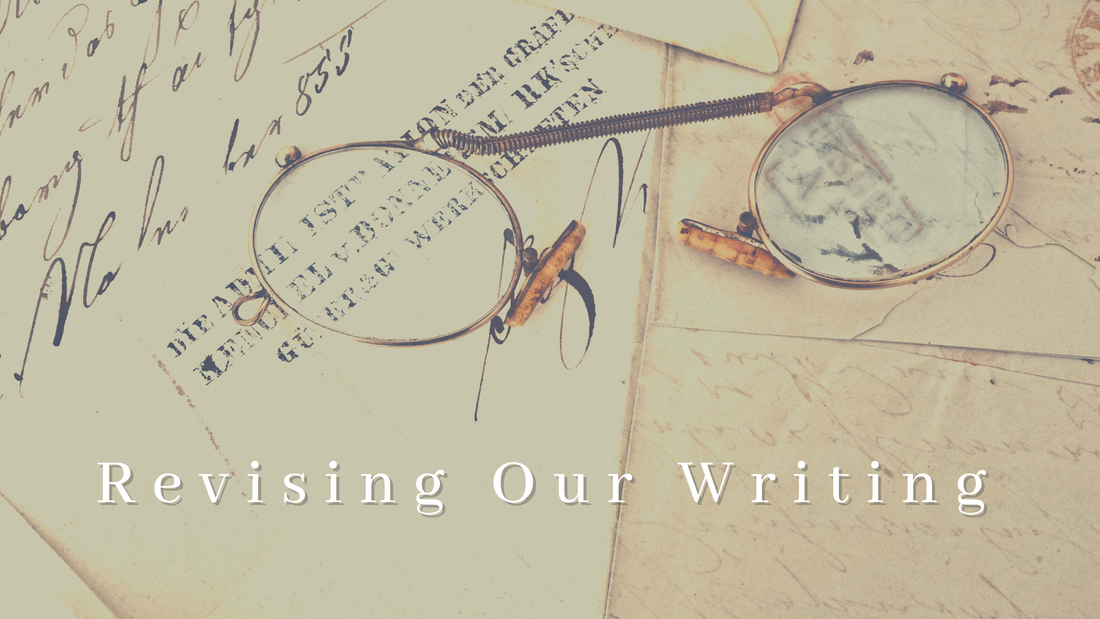|
I enjoyed a unique phone call recently. One of my former students reached out for help with a long essay. As a hopeful history major, Eric wanted to submit a college application essay on a historical subject he loved—the French Revolution. He had narrowed the topic to the role of Royalist journalists and had completed all of the research, including some amazing digitized letters and propaganda from that time period. Unfortunately, the essay had practically become a list of quotes and sources and key figures. Some connections among them had been made, but it wasn’t coherent. Yet. We circled back to his premise, and I asked, “What is your point? What are you leading us to understand?” That helped a little bit, but Eric said he needed more time to think about it. So of course I asked him to revise it further, and he immediately asked, “What does that word mean?” Good question. From Latin and French roots, revise means to look at or look over again. It sounds horribly simple: By the 1590s, revise came to mean "to look over again with intent to improve or amend."* But that doesn’t help the student know what to do. They understand by context that they must make corrections. These are the concrete elements, the checklist, the things the teacher may have noted like “add a transition phrase here” or “choose a stronger verb” or “check for commas.” This is editing, not rewriting or revising. But Eric had moved beyond concrete editing already. As teachers, we have to remember that we are both readers and writers. If we instruct in writing, it’s because we read first. In God in the Dock, C.S. Lewis reminds us that “The reader, we must remember, does not start by knowing what we mean. If our words are ambiguous, our meaning will escape him. I sometimes think that writing is like driving sheep down a road. If there is any gate open to the left or the right, the reader will most certainly go into it.” And that compelled me to ask Eric a few questions: How can you make your writing more clear? Is there a sentence or thought that obscures or leads you away from what you really mean to say? If you were an editor of a historical journal, what would you cut as excess?” In this instance, it was a fruitful exercise. He immediately cut several “interesting” facts that did not lead to his real point—the Royalists believed revolution was sin because they were preserving the semblance of Jesus Christ, King Louis XVI. Eric eliminated four sentences in four pages. He told me it was easier to see once I mentioned that sentences can lead away as well as lead us to the premise. It may not seem like a lot, but by removing them, he could more easily see what needed to be connected.
I hesitate to use the phrase “big picture,” yet I would ask if we can see the essay as a whole. Can we see our way in the forest through the leaves of words or has the path been obscured? Before, fascinating tidbits led Eric into the weeds and fields beside the path. By eliminating what led him away, he gained the path again. Each fact, each quote, each sentence connected his journey along the path of the essay. And seeing might be the point of revision, to re-vision our thoughts. *Online Etymology Dictionary
0 Comments
Your comment will be posted after it is approved.
Leave a Reply. |


 RSS Feed
RSS Feed